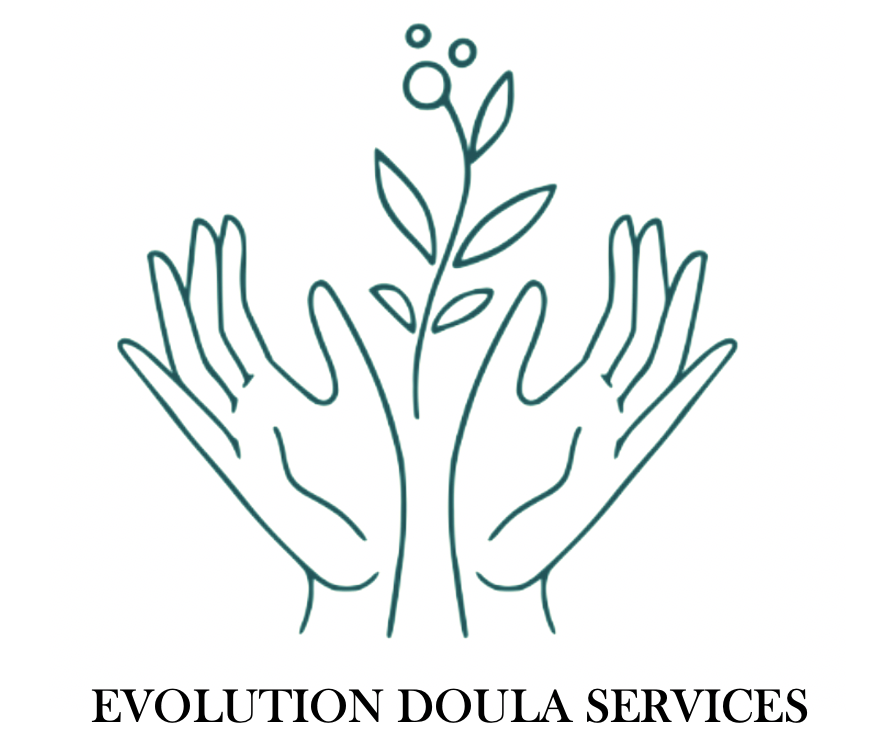Frequently Asked Questions:
What’s the difference between a doula and a midwife?
A doula is a *non-clinical* support person who focuses on caring for you emotionally and physically throughout labor, birth, and postpartum. While there are some similarities, a midwife differs from a doula in a very large way. A midwife is a *medical* professional, and as your health care provider their primary focus is on the health and safety of you and your baby. Both doulas and midwives work with you prenatally, support you throughout the birth and follow up with you postpartum. During a birth, doulas offer comfort measures such as massage, acupressure, & hip squeezes, provide guidance and reassurance, and repeat affirmations that empower you. Midwives have top priorities that include: ensuring that you and baby's vital signs are stable, clinically assessing you and your baby, completing cervical exams if necessary, administering medication if necessary, and catching your baby.
Why do I need a doula if my partner is there with me?
"Won’t my partner feel left out if I get a doula?". Many believe that a doula replaces a partner when, in fact, we support them throughout the birth process as well. Doulas are very aware of one fact: Your partner knows you better than anyone else. Even if they aren't sure how to support you in labor/birth, they understand your fears, & know your preferences and desires. We encourage partners to take part in the process, offering guidance and suggestions when needed, reminding them to also stay hydrated & take bathroom breaks, and much more. Even if your partner has witnessed birth before, they deserve support and the comfort of knowing they are supported as well.
When should I hire a doula?
Typically, the beginning of your third trimester is a good time to have your doula secured by. We often recommend that you start your search in your second trimester, talk to and interview a few doulas, and determine who is the right fit for you. You deserve someone you feel a connection with and someone who you feel fits your personality and specific needs. (See #6)What kind of births do doulas support?
Home birth, birth center birth, hospital birth, vaginal or cesarean births; doulas support ALL kinds of birth. A common stereotype is that doulas only attend home births, or only support “natural birth”. A large number of doulas can be found in hospitals and birth centers, and often, doulas support birthing people who choose epidurals or other pain management, or who require surgical intervention. I am trained and happy to support birth in all environments, and in all it’s forms.Why do I need a doula in the hospital?
I believe that ALL birthing people benefit from doula support, however, those giving birth in the hospital are often the most in need of it. While there are nursing staff who provide great care in labor & delivery departments, they have other duties to fulfill & don’t often have the luxury of spending alot of time with each patient. Having a doula with you means that you have continuous, present support throughout your labor and birth. Doula’s are able to explain any hospital policies and/or procedures, to facilitate communication with staff and health care providers, and to maintain a calm space for a positive labor & birth experience (this is especially helpful if you are someone who experiences anxiety or fears related to medical environments).How do I find the right doula for me?
You deserve the best support team you can get! Every doula and every doula style is unique, so there are a few things to consider when interviewing:
-Trust your gut. Does the doula's personality fit you and your partner? Do you feel comfortable with them? What works for one, may not work for another - talk to a few doulas to get a sense of the variety of personalities and support styles you have available to you.
-What kind of support are you looking for? Do you have specific preferences for pregnancy & birth? Are you planning to use a certain birthing method, breathing technique, or other tools? Finding a doula who can unconditionally support you and who has experience with these things can make all the difference. Doulas often acquire additional training and certifications to provide you with a more well-balanced approach to doula support. What, if any, additional knowledge would you want your doula to have (ie. acupressure, aromatherapy, belly casting, childbirth/lactation education, massage, optimal fetal positioning, photography, placenta encapsulation, etc.)?
-When the connection feels right, go for it. After the logistics like doula availability and pricing are discussed, move forward if you feel comfortable adding this person to your birth support team!In Addition: A certified, professional doula is taught to acquire a back-up doula, in case of emergency. Ask if your doula works with specific back-up doulas, so you can have a chance to learn more about/meet them prior to labor starting.
